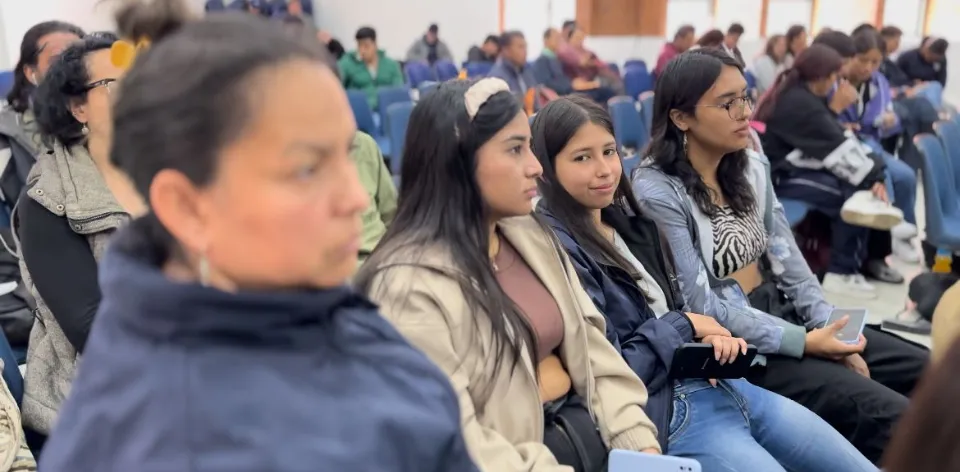PRESS ROOM
 8/5/2024
8/5/2024
UPRA shared RECIA with apprentices and instructors from SENA at the Agricultural Biotechnology Center

During the event, more than 100 students and instructors participated in person, and another 100 virtually.
Bogotá D.C., (@Minagricultura, @UPRAColombia, @claudialili76). As part of the Collaborative Network of Agricultural Infrastructure (RECIA), the Rural Agricultural Planning Unit (UPRA) held a socialization event in partnership with the National Learning Service (SENA) and Agrosavia. This event, which took place at the SENA's Agricultural Biotechnology Center in Mosquera, brought together various stakeholders in the agricultural sector interested in information management and rural development.
The event featured the participation of Nelson Gómez Botero, deputy director of the SENA's Agricultural Biotechnology Center, who highlighted the importance of RECIA as a vital tool for optimizing the use of agricultural infrastructure throughout Colombian territory: "Conducting this type of inventory will allow the existing infrastructure to be very well utilized", he affirmed.
Lucía Mahecha Silva, RECIA leader at UPRA, explained that SENA's support is crucial as it allows the project to have a broader reach. "SENA has the capacity to distribute this tool nationwide because they train professionals in the agricultural sector throughout Colombian territory, and for us, it is a challenge to bring this tool to the entire country, to rural areas, where there is no connectivity.”
Ensuring that RECIA reaches all regions of the country is vital due to its ability to democratize access to information about agricultural infrastructure. Communicating RECIA through SENA means providing students and instructors with tools to connect farmers and producers so they can be actors in efficient infrastructure management; this promotes equitable and sustainable development throughout the national territory.
Additionally, Claudia Patricia Téllez, a professional from AgroSENA, highlighted the relevance of the event in disseminating information and updating tools for agricultural information management: "With this event, information dissemination and tool updates that allow agricultural information management, especially the RECIA strategy, will be promoted", she mentioned.
At the meeting, attendees were presented with the RECIA strategy, which seeks to facilitate the management and consultation of information on agricultural infrastructure nationwide. This initiative will allow producers, institutions, and state entities to access key data for decision-making in the sector. Students and other attendees emphasized the relevance of RECIA in the context of agricultural development and the need for greater collaboration between sector institutions.
To advance in the socialization and positioning of RECIA, UPRA will continue to develop spaces where greater visibility can be given to the tool and reach more corners of the country.

